
Randolph Denard Ornette Coleman was an American jazz saxophonist, trumpeter, violinist, and composer. He was best known as a principal founder of the free jazz genre, a term derived from his 1960 album Free Jazz: A Collective Improvisation. His pioneering works often abandoned the harmony-based composition, tonality, chord changes, and fixed rhythm found in earlier jazz idioms. Instead, Coleman emphasized an experimental approach to improvisation, rooted in ensemble playing and blues phrasing. AllMusic called him "one of the most beloved and polarizing figures in jazz history," noting that while "now celebrated as a fearless innovator and a genius, he was initially regarded by peers and critics as rebellious, disruptive, and even a fraud."

The Shape of Jazz to Come is the third album by jazz musician Ornette Coleman. Released on Atlantic Records in 1959, it was his debut on the label and his first album featuring the working quartet including himself, trumpeter Don Cherry, bassist Charlie Haden, and drummer Billy Higgins. The recording session for the album took place on May 22, 1959, at Radio Recorders in Hollywood, California. Although Coleman initially wished for the album to be titled Focus on Sanity after the LP's fourth track, Atlantic producer Nesuhi Ertegun suggested the final title, feeling that it would give consumers "an idea about the uniqueness of the LP."
Harmolodics is a musical philosophy and method of musical composition and improvisation developed by American jazz saxophonist-composer Ornette Coleman. His work following this philosophy during the late 1970s and 1980s inspired a style of forward-thinking jazz-funk known as harmolodic funk. It is associated with avant-garde jazz and free jazz, although its implications extend beyond these limits. Coleman also used the name "Harmolodic" for both his first website and his record label.

In All Languages is a 1987 double album by Ornette Coleman. Coleman and the other members of his 1950s quartet, trumpeter Don Cherry, bassist Charlie Haden, and drummer Billy Higgins, performed on one of the two records, while his electrified ensemble, Prime Time, performed on the other. Many of the songs on In All Languages had two renditions, one by each group.

Charnett Moffett was an American jazz bassist.
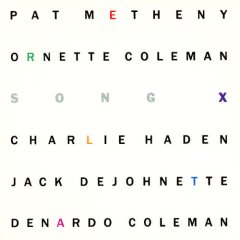
Song X is a collaborative studio album by American jazz guitarist Pat Metheny and saxophonist Ornette Coleman. It is a free jazz record that was produced in a three-day recording session in 1985. The album was released in June 1986 by Geffen Records.

Denardo Ornette Coleman is an American jazz drummer. He is the son of Ornette Coleman and Jayne Cortez.

Spy vs Spy: The Music of Ornette Coleman is a 1989 album by American composer and saxophonist/multi-instrumentalist John Zorn, featuring the compositions of Ornette Coleman performed in the brief, intense style of Zorn's hardcore miniatures.
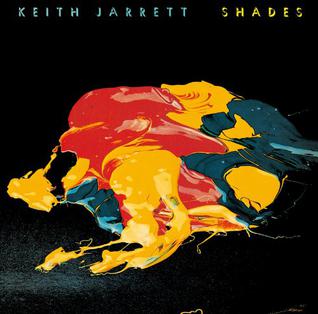
Shades is the fifth album on the Impulse label by jazz pianist Keith Jarrett. Originally released in 1976, it features performances by Jarrett's 'American Quartet', which included Dewey Redman, Charlie Haden and Paul Motian with Guilherme Franco added on percussion.

Of Human Feelings is an album by American jazz saxophonist, composer, and bandleader Ornette Coleman. It was recorded on April 25, 1979, at CBS Studios in New York City with his band Prime Time, which featured guitarists Charlie Ellerbee and Bern Nix, bassist Jamaaladeen Tacuma, and drummers Calvin Weston and Coleman's son Denardo. It followed the saxophonist's failed attempt to record a direct-to-disc session earlier in March of the same year and was the first jazz album to be recorded digitally in the United States.

Opening the Caravan of Dreams is a 1985 live album by jazz saxophonist Ornette Coleman and his Prime Time ensemble. It was recorded at a concert inaugurating the Caravan of Dreams, a then-newly opened performing arts center in Coleman's hometown of Fort Worth, Texas.
Discography for American jazz saxophonist Ornette Coleman.

To Whom Who Keeps a Record is an album credited to jazz composer and saxophonist Ornette Coleman, originally released by the Japanese subsidiary Warner Pioneer of Warner Bros. Records in 1975. The album, which was assembled by Atlantic producer İlhan Mimaroğlu without Coleman's input, comprises outtakes from Atlantic Records recording sessions of 1959 and 1960 for Change of the Century and This Is Our Music. Sessions for "Music Always" took place at Radio Recorders in Hollywood, California with Billy Higgins on drums; all others took place at Atlantic Studios in New York City with drummer Ed Blackwell.

Tone Dialing is an album recorded in 1995 by the American jazz composer and saxophonist Ornette Coleman and his Prime Time ensemble. It was released in September 1995 by Coleman's Harmolodic record label, in partnership with Verve/PolyGram. It was the Harmolodic label's first release, and "the first disc fully devoted to Coleman's music in eight years."

Colors: Live from Leipzig is a live album by the American jazz composer and saxophonist Ornette Coleman and German pianist Joachim Kühn recorded in 1996 and released on the Harmolodic/Verve label.

Sound Museum: Three Women is an album by the American jazz composer and saxophonist Ornette Coleman recorded in 1996 and released on the Harmolodic/Verve label. It is dedicated to Don Cherry and Ed Blackwell.
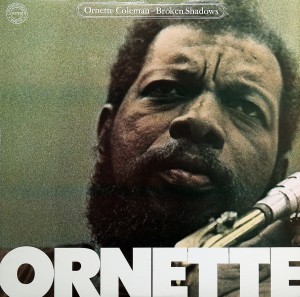
Broken Shadows is an album by the American jazz saxophonist and composer Ornette Coleman recorded in 1971, at the same sessions that produced Science Fiction, but not released on the Columbia label until 1982.
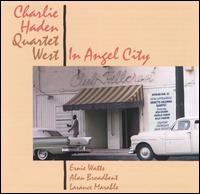
In Angel City is an album by the American jazz bassist Charlie Haden's Quartet West, recorded in 1988 and released on the Verve label.

The Montreal Tapes: with Paul Bley and Paul Motian is a live album by the American jazz bassist Charlie Haden with pianist Paul Bley and drummer Paul Motian recorded in 1989 and released on the Verve label.
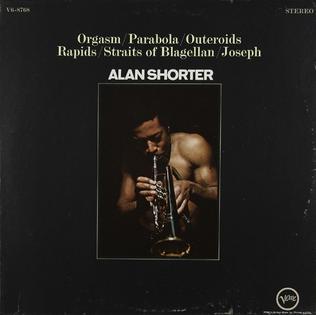
Orgasm is an album by jazz hornist Alan Shorter recorded in 1968 and released on the Verve label. It was also released under the title Parabolic during the same year in the UK.


















